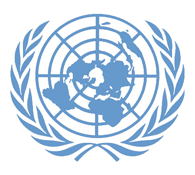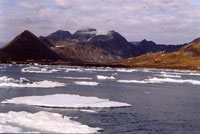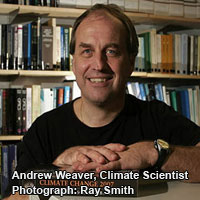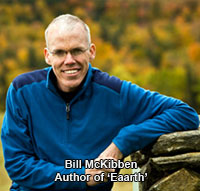
News |
- Trade Justice Warns CETA to Risk Seed
- The Silence of the Buzzing
- Environmental Impacts of Industry Assessed
- New U.S. Fuel Economy Standards
- Melting Arctic Ice Reveals Artifacts
- Bolivia: Indigenous Peoples Declaration
- WWF: Arctic Ocean Rules Needed
- Climate Shareholder Resolutions Filed
- The Plastiki
- Climatologist Sues National Post
- Eaarth Warns of Changes to Come
- Principles for Global Leaders Forum
| Trade Justice Warns CETA to Risk Seed | 7 May 10 |
 The Council of Canadians released a fact sheet October 2009, Open For Business Privatization, not higher standards, the main goal of Canada-EU free trade talks which called on Canadians to urge elected representatives to oppose the proposed Comprehensive Economic and Trade Agreement (CETA) between the European Union (EU) and Canada. The Council of Canadians released a fact sheet October 2009, Open For Business Privatization, not higher standards, the main goal of Canada-EU free trade talks which called on Canadians to urge elected representatives to oppose the proposed Comprehensive Economic and Trade Agreement (CETA) between the European Union (EU) and Canada.On April 19, 2010 the Trade Justice Network, a network of environmental, labour, farmer, cultural and social justice organizations concerned about the impacts of CETA leaked the draft text of CETA. The same day the Canadian Centre for Policy Alternatives (CCPA) issued a study entitled Negotiating from Weakness: Canada-EU trade treaty threatens Canadian purchasing policies and public services. "CETA would give seed companies enforcement and confiscation powers pertaining to all other seeds – those that do not contain patented genes – that exceeds even the powers that companies possess for their gene-patented varieties," said National Farmers Union President Terry Boehm during a April 21, 2010 pres release in Ottawa. Boehm explains that CETA would give seed companies the power to seize crops, farm property, seeding and harvest equipment, and freeze farmers assets. Seed companies would also have a veto power over independent seed cleaners. "If farmers can't get their farm-saved seeds cleaned, farmers can't save and re-use seed," commented Boehm. Twenty five organizations have signed Trade Justice's Joint Statement, including, Sierra Club Canada, National Farmers Union, Council of Canadians, Canadian Union of Public Employees and Canadian Auto Workers Union. View Trade Justice Networks websiteView Government of Canada webpage on CETA Negotiations View Council of Canadians Fact Sheet (PDF) View Canadian Centre for Policy Alternatives report View April 21, 2010 National Farmers Union press release Source: Trade Justice Network |
|
 Print version Print version |
Top |
| The Silence of the Buzzing | 5 May 10 |
 Bees contribute an estimated $15 billion dollars per year to the U.S. economy. But for the fourth year in a row American apiaries have been ravaged by the phenomenon dubbed colony collapse disorder (CCD). The number of managed colonies fell by 33.8% according to a survey by the Apiary Inspectors of America and the US Agricultural Research Service (ARS). Bees contribute an estimated $15 billion dollars per year to the U.S. economy. But for the fourth year in a row American apiaries have been ravaged by the phenomenon dubbed colony collapse disorder (CCD). The number of managed colonies fell by 33.8% according to a survey by the Apiary Inspectors of America and the US Agricultural Research Service (ARS).No one is precisely certain of the cause of CCD. A January 2010 Congressional Report, entitled "Honey Bee Colony Collapse Disorder" identified three major possibilities: pesticides, parasites, and a combination of existing stresses that may compromise the immune system of bees and disrupt their social system. Many environmental groups and publications have honed in on the risks posed by pesticides, and in particular a class of pesticides known as neonicotinoids. One such pesticide, clothianidin, is "highly toxic to honey bees" according to an Environmental Protection Agency (EPA) Fact Sheet and has already been banned in several European countries. The Natural Resources Defense Council (NRDC) and the Xerces Society successfully sued to invalidate EPA approval of the pesticide spirotetramat, a related neonicotinoid pesticide, in December of 2009, but other neonicotinoids like clothianidin remain on the shelves. View May 2, 2010 Observer articleView January 7, 2010 Congressional Report (PDF) View January 7, 2010 Earth 360 article View October/November 2009 Mother Earth News article View December 29, 2009 NRDC press release View more information on Manitoba Wildlands Source: The Observer, Congressional Research Service, NRDC |
|
 Print version Print version |
Top |
| Environmental Impacts of Industry Assessed | 5 May 10 |
 An unpublished study, conducted for the United Nations by Trucost, has found the cost of pollution and environmental damage caused by the world's biggest companies would wipe out more than one-third of their profits if they are held financially accountable. An unpublished study, conducted for the United Nations by Trucost, has found the cost of pollution and environmental damage caused by the world's biggest companies would wipe out more than one-third of their profits if they are held financially accountable.The study, due to be published this summer, found the estimated combined environmental damage was worth $2.2 trillion dollars as of 2008. The biggest single impact in the $2.2 trillion dollar estimate, accounting for over half of the total costs, are greenhouse gases emissions related to climate change. Other major costs were local air pollution such as particulates, and the damage caused by the over-use and pollution of freshwater. The true figure is likely to be even higher because the $2.2 trillion does not include damage caused by household and government consumption of goods and services, such as energy used to power appliances or waste; "social impacts" such as migration of people driven out of affected areas, or long-term effects of damage other than that from climate change. The final report will also include a higher total estimate which includes long-term effects of problems such as toxic waste. View February 18, 2010 Guardian articleSource: The Guardian |
|
 Print version Print version |
Top |
| New U.S. Fuel Economy Standards | 5 May 10 |
 The U.S. Environmental Protection Agency (EPA) and Department of Transportation have finalized important new combined global warming emissions and fuel economy standards for autos for the years 2012-2016. The new standards bring fuel economy to 35.5 miles per gallon and carbon dioxide emissions will be reduced to 250 grams per mile by 2020. The U.S. Environmental Protection Agency (EPA) and Department of Transportation have finalized important new combined global warming emissions and fuel economy standards for autos for the years 2012-2016. The new standards bring fuel economy to 35.5 miles per gallon and carbon dioxide emissions will be reduced to 250 grams per mile by 2020.Greenhouse-gas emission standards will become more stringent with each new model year from 2012 to 2016. The new regulations include an industry-specific emissions-trading scheme under which car makers that don't meet the new standards can buy credits from rivals that have exceeded the standards. The efficiency gains in autos sold under these standards will save 1.8 billion barrels of oil over the life of the program. This is the first time the US Clean Air Act has been used to tackle global warming emissions, and is also the first significant increase in fuel economy standards since the original 1975 standards. "These standards are a grand slam: billions of dollars in consumer savings at the pump, a huge reduction in oil use, significant cuts in pollution, and they will help a more sustainable domestic auto industry thrive," states Michael Brune, Sierra Club Executive Director. View April 1, 2010 Sierra Club press releaseView April 1, 2010 Huffington Post article View April 1, 2010 CBC article Source: CBC, Sierra Club |
|
 Print version Print version |
Top |
| Melting Arctic Ice Reveals Artifacts | 5 May 10 |
 Melting ice pockets in Canada's Arctic mountains are slowly revealing the habits of caribou hunters over thousands of years as they moved from attacking with spears to bows and arrows and even set traps to snare smaller animals. Melting ice pockets in Canada's Arctic mountains are slowly revealing the habits of caribou hunters over thousands of years as they moved from attacking with spears to bows and arrows and even set traps to snare smaller animals.Since 2005 archeologist Tom Andrews and colleagues have been piecing together how hunters in the area adapted over many generations, studying bits of tools grabbed from melting snowy patches in western Northwest Territories along the Yukon boundary. Patches of ice are slowly receding each year, likely due to global warming, revealing perfectly preserved relics of the past. "It's very exciting," states Andrews. "It's very rare that we get to find artifacts that are so well preserved." Andrews has worked closely with aboriginal people in the region, including the Tulita Dene band. Leon Andrew, a band member and brother of the chief, says he's astounded to watch perfectly formed pieces emerge from the ice. "We hear all kinds of traditional stories, but we have no method of backing it up. Now we have some details about arrowhead making, etc., and can actually see how the stones are made," says Leon. "It kind of opens up our history." View April 27, 2010 CBC articleView April 26, 2010 Science Daily article View April 26, 2010 MSNBC article Source: CBC |
|
 Print version Print version |
Top |
| Bolivia: Indigenous Peoples Declaration | 30 April 10 |
 The People's World Conference on Climate Change and the Rights of Mother Earth convened in Cochabamba, Bolivia, from 19-22 April 2010. The conference provided a forum to discuss the causes of climate change and propose measures that facilitate the well-being of mankind in harmony with nature. The People's World Conference on Climate Change and the Rights of Mother Earth convened in Cochabamba, Bolivia, from 19-22 April 2010. The conference provided a forum to discuss the causes of climate change and propose measures that facilitate the well-being of mankind in harmony with nature.A 10-page Conference declaration calls on developed countries to take measures such as:
The declaration also urges approval of a second commitment period under the Kyoto Protocol in which developed countries commit to reduce domestic emissions by at least 50% against 1990 levels without resorting to market-based mechanisms. It further calls for recognition and integration of the UN Declaration on the Rights of Indigenous Peoples in climate change negotiations. The final declaration foresees a second People's World Conference on Climate Change and the Rights of Mother Earth will be held in 2011 to discuss the results of Conference of the Parties (COP) 16 in Mexico City, December 2010. View April 28, 2010 World People's Conference on Climate Change DeclarationView April 30, 2010 World People's Conference on Climate Change Declaration View April 23, 2010 World People's Conference on Climate Change article View April 19, 2010 BBC article View April 18, 2010 Guardian article View May 3, 2010 Common Dreams article Source: IISD |
|
 Print version Print version |
Top |
| WWF: Arctic Ocean Rules Needed | 30 April 10 |
 The World Wildlife Fund (WWF) is calling on Arctic nations to put new environmental and security rules in place to protect the Arctic Ocean and coastline. The World Wildlife Fund (WWF) is calling on Arctic nations to put new environmental and security rules in place to protect the Arctic Ocean and coastline.Released through three reports, the WWF is stating there are large gaps and loopholes in current regulations that apply to activity in the Arctic Ocean. In reviewing those regulations, the reports state the current rules were established when year-round Arctic sea ice closed off access to the natural riches beneath the ocean. But as the sea ice melts, there will be more shipping, fishing and oil and gas exploration – and a rising risk of more environmental accidents such as oil slicks. "The melting of the Arctic ice is opening a new ocean, and this of course brings new opportunities for commercial activities in a part of the world that has previously been totally or almost totally inaccessible," Lasse Gustavsson, CEO of WWF Sweden. "We might face pollution, oil spills, overfishing and maybe even illegal fishing." The reports call for the Arctic Council, a high-level political forum of eight countries – including Canada and the U.S. – to lead efforts to regulate shipping, fishing and environmental protection in the North. View February 8, 2010 WWF reports (PDF)View April 28, 2010 CBC article View April 26, 2010 WWF article View April 26, 2010 Edmonton Journal article Source: CBC, WWF |
|
 Print version Print version |
Top |
| Climate Shareholder Resolutions Filed | 28 April 10 |
 A group of leading U.S. investors have filed a record 99 climate change shareholder resolutions with 82 U.S. and Canadian companies. The 40 percent increase in resolutions filed over last year is a sign of growing pressure on companies to disclose climate risks and opportunities in the wake of recent policy developments. A group of leading U.S. investors have filed a record 99 climate change shareholder resolutions with 82 U.S. and Canadian companies. The 40 percent increase in resolutions filed over last year is a sign of growing pressure on companies to disclose climate risks and opportunities in the wake of recent policy developments. Companies targeted by these resolutions include coal companies, coal power and oil producers, homebuilders, big box retailers and financial institutions who investors believe are not adequately disclosing and managing climate-related business impacts. Many resolutions aim directly at core issues outlined in new interpretive guidance on climate disclosure. For example, resolutions filed with ExxonMobil and ConocoPhillips ask the companies to report on regulatory, legal and reputational risks, as well as environmental impacts, from extensive Canadian oil sands operations. Both companies spend billions on oil extraction in Canada, which typically has a significantly higher carbon footprint than traditional oil production. Shell has dismissed shareholder calls for a review of its controversial oil sands developments. The investors tabling the resolutions argue oil sands projects are too big an environmental and economic liability. They also argue that climate change caused by oil sands development could put shareholders' other investments at risk. View March 4, 2010 CERES articleView complete list of climate-related shareholder resolutions View March 5, 2010 Institutional Share Owner article View April 13, 2010 Common Dreams article Sources: CERES, Common Dreams |
|
 Print version Print version |
Top |
| The Plastiki | 26 April 10 |
 After nearly four years of development, eco-adventurer David de Rothschild has launched his most ambitious expedition yet. Rothschild and a crew of experts and scientists will sail 12,000 nautical miles across the Pacific Ocean from San Francisco to Sydney in a boat made out of plastic bottles and recycled waste products. This epic voyage is named The Plastiki, taking inspiration from Thor Heyerdal's 1947 expedition The Kontiki. After nearly four years of development, eco-adventurer David de Rothschild has launched his most ambitious expedition yet. Rothschild and a crew of experts and scientists will sail 12,000 nautical miles across the Pacific Ocean from San Francisco to Sydney in a boat made out of plastic bottles and recycled waste products. This epic voyage is named The Plastiki, taking inspiration from Thor Heyerdal's 1947 expedition The Kontiki.The Plastiki aims to draw attention to the rethinking of everyday human fingerprints on the natural world. The voyage aims to capture the world's imagination by telling the story of the pioneering and sustainable design process that created and built The Plastiki. This voyage will see The Plastiki sail through a number of fragile and ecologically challenged regions, from the world's largest waste aquatic dump to The Line Islands and Tuvalu. The team aims to inspire, as well as to motivate tomorrow's environmental thinkers and doers to take positive action for the planet and be smart with waste. Ultimately, they hope to inspire people to rethink waste as a valuable resource. Visit Plastiki WebsiteVisit National Geographic Website: The Plastiki View Oprah Earth Day Special Video: Exclusive Tour of the Plastiki View CNN coverage of the Plastiki Source: National Geographic |
|
 Print version Print version |
Top |
| Climatologist Sues National Post | 26 April 10 |
 On April 21st, 2010, University of Victoria Professor Andrew Weaver launched a lawsuit in the BC Supreme Court against three writers at The National Post (and the newspaper as a whole), over a series of libels that have gone viral on the Internet. On April 21st, 2010, University of Victoria Professor Andrew Weaver launched a lawsuit in the BC Supreme Court against three writers at The National Post (and the newspaper as a whole), over a series of libels that have gone viral on the Internet.In a released statement, Dr. Weaver said, "I asked The National Post to do the right thing - to retract a number of recent articles that attributed to me statements I never made, accused me of things I never did, and attacked me for views I never held. To my absolute astonishment, the newspaper refused." Dr. Weaver's statement of claim asks for a Court injunction requiring The National Post to remove all of the false allegations from its Internet websites, and also seeks a Court order requiring the newspaper to assist Dr. Weaver in removing the National Post articles from other Internet sites where the articles have been re-posted. "If I sit back and do nothing to clear my name, these libels will stay on the Internet forever. They'll poison the factual record, misleading people who are looking for reliable scientific information about global warming," states Weaver. The Court injunction seeks general, aggravated damages, special and exemplary damages and legal costs in relation to the articles "Weaver's Web" by Financial Post columnist Peter Foster, "Weaver's Web II" and "Climate Agency going up in flames" by Editor Terence Corcoran and "So much for pure science" written by reporter Kevin Libin. View April 21, 2010 Marketwire articleView April 21, 2010 CBC article View April 22, 2010 Guardian article View April 22, 2010 BC Local News article Source: MarketWire |
|
 Print version Print version |
Top |
| Eaarth Warns of Changes to Come | 23 April 10 |
 Bill McKibben, founder of 350.org and author of The End of Nature, has released a new book Eaarth: Making a Life on a Tough New Planet. Eaarth addresses the unavoidable effects of climate change and confronting an earth that is suddenly melting, drying, acidifying, flooding and burning in unprecedented ways. Bill McKibben, founder of 350.org and author of The End of Nature, has released a new book Eaarth: Making a Life on a Tough New Planet. Eaarth addresses the unavoidable effects of climate change and confronting an earth that is suddenly melting, drying, acidifying, flooding and burning in unprecedented ways.Our hope depends, McKibben argues, on scaling back—on building the kind of societies and economies that concentrate on essentials, and create the type of community that will allow us to weather trouble on an unprecedented scale. "What really sets Eaarth apart from other green books is McKibben's prescription for survival. This won't be just a matter of replacing a few lightbulbs; McKibben is calling for a more local existence lived 'lightly, carefully, gently.' It's a future unimaginable to most of us, but it may be the only way to survive," states Time magazine. View April 15, 2010 Common Dreams article and videoVisit Macmillan Publishing website Visit Bill McKibben's Eaarth homepage Source: MacMillan Publishing |
|
 Print version Print version |
Top |
| Principles for Global Leaders Forum | 21 April 10 |
 Previously, civil society organizations called for a new multilateral international leaders' forum to help govern the global economy. In response to current global crises and the importance of emerging economies, the G8 is also part of a new forum, the G20. Previously, civil society organizations called for a new multilateral international leaders' forum to help govern the global economy. In response to current global crises and the importance of emerging economies, the G8 is also part of a new forum, the G20.When promising to repair the global economy and build an inclusive and sustainable recovery, G-20 leaders injected 1.1 trillion dollars into many institutions whose economic, finance and trade policies lead to the current global economic situation. The Halifax Initiative has stated that global governance reform must go hand in hand with an economic paradigm that promotes equity, justice and environmental sustainability, and governments fulfill their human rights obligations and all citizens are able to claim their rights. With Canada hosting both the G8 and G 20 meetings, 2010 is an opportunity to ensure G20 policies result in democratic and sustainable changes in the the world. The Canadian Halifax Initiative, initiated a letter signed by over 100 international civil society organizations that calls on all governments to adhere to six key principles for renewing multilateralism and building a global leaders forum. These key principles include:
View Halifax Initiative Website View March 13, 2010 Common Dreams Article Sources: The Halifax Initiative |
|
 Print version Print version |
Top |


 RSS Feeds:
RSS Feeds: